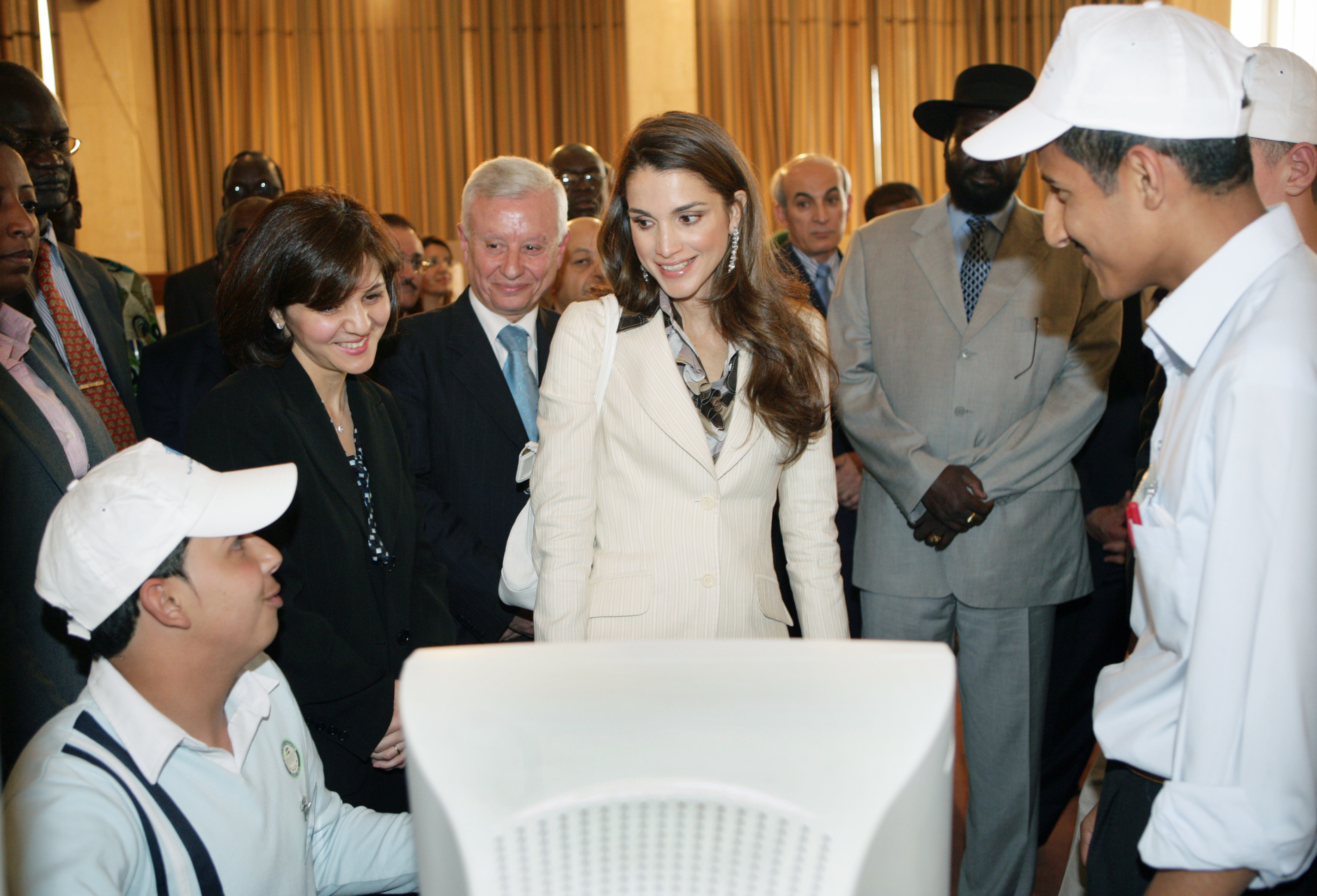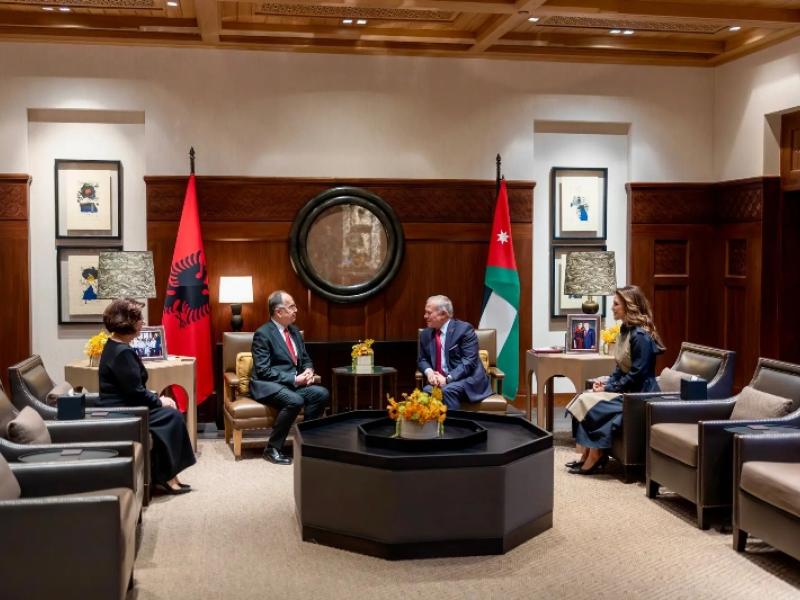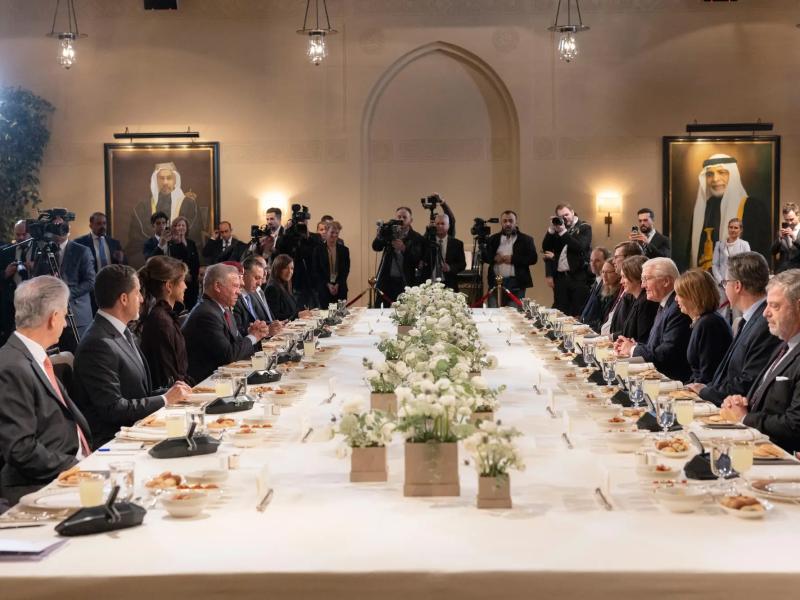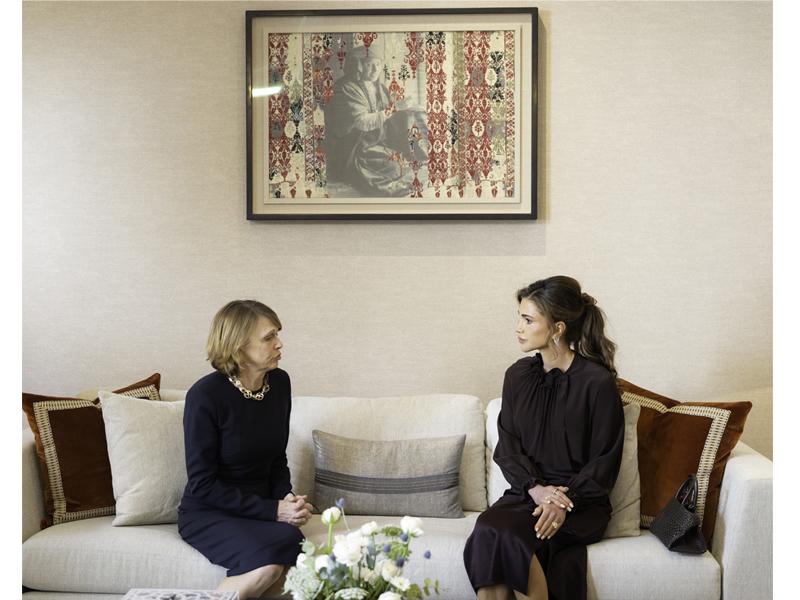(Mahmoud Habboush, Jordan Times – Amman) – Schoolchildren across the country on Tuesday presented their visions of how to empower the use of technology in education at the Creativity Festival, organised by the Ministry of Education and World Links Arab Region (WLAR).
More than 500 projects, 30 online newsletters and 30 designs for ideal schools, all completed by students from 400 schools in the country, were celebrated at the event, which Her Majesty Queen Rania and Sudanese Vice President Silva Kiir Mayardit attended.
The projects were jointly implemented via the Internet between students from schools in Jordan and other countries, including Syria, the Dominican Republic and the United States.
"Applying technology in education is not a goal in itself, it is the dynamic interaction of students with their peers, the curriculum and teachers," Queen Rania told a group of teachers who worked with students on their projects.
"Teachers' knowledge has grown rich from the use of modern technologies," said the Queen, who is a member of WLAR's Advisory Council.
Some of the projects focussed on a multicultural theme, such as 'Let's Celebrate Our Differences,' conducted via the Internet with students in the United States and the Dominican Republic, whereby students utilised technology to explore each others' culture and traditions.
Other projects centred on domestic issues such as religious tourism in Jordan and the country's role in promoting the image of Islam, in addition to joint educational projects with Syrian students.
The World Links programme was launched in Jordan in June 2003 and functions as a global learning network linking thousands of students and teachers around the world via the Internet for collaborative projects and integration of technology into learning. The programme provides connectivity solutions, professional development for teachers and training programmes for both policy-makers and local communities interested in launching educational technology initiatives.
WLAR has trained more than 1,500 teachers in some 550 schools across Jordan since late 2003. The courses were centred on employing technology in the teaching process.
"Although teachers face many challenges, there have been major achievements," the Queen said, adding that they will be provided with the right educational tools to strengthen their role. By the end of 2007, WLAR, in cooperation with the Ministry of Education, will have trained a total of 5,000 teachers.
"I've been teaching for 17 years, but since I started employing technology in my classes two years ago I have gained more experience and knowledge than in the previous 15 years," Tawfik Ibrahim, a teacher at an Irbid agricultural vocational school, told the Queen. "With information technology, the teacher is no longer the only information source for the students. Students are now able to search for information by themselves," he said.
Ibrahim said exposure to the Internet has widened his students' knowledge-base and stimulated debate inside the classroom. "I have been conducting research constantly to be able to respond to students' question generated from their exposure to information resources," he said.
Today, World Links is recognised as one of the most innovative and successful education programmes assisting developing countries in bridging the "digital divide."



